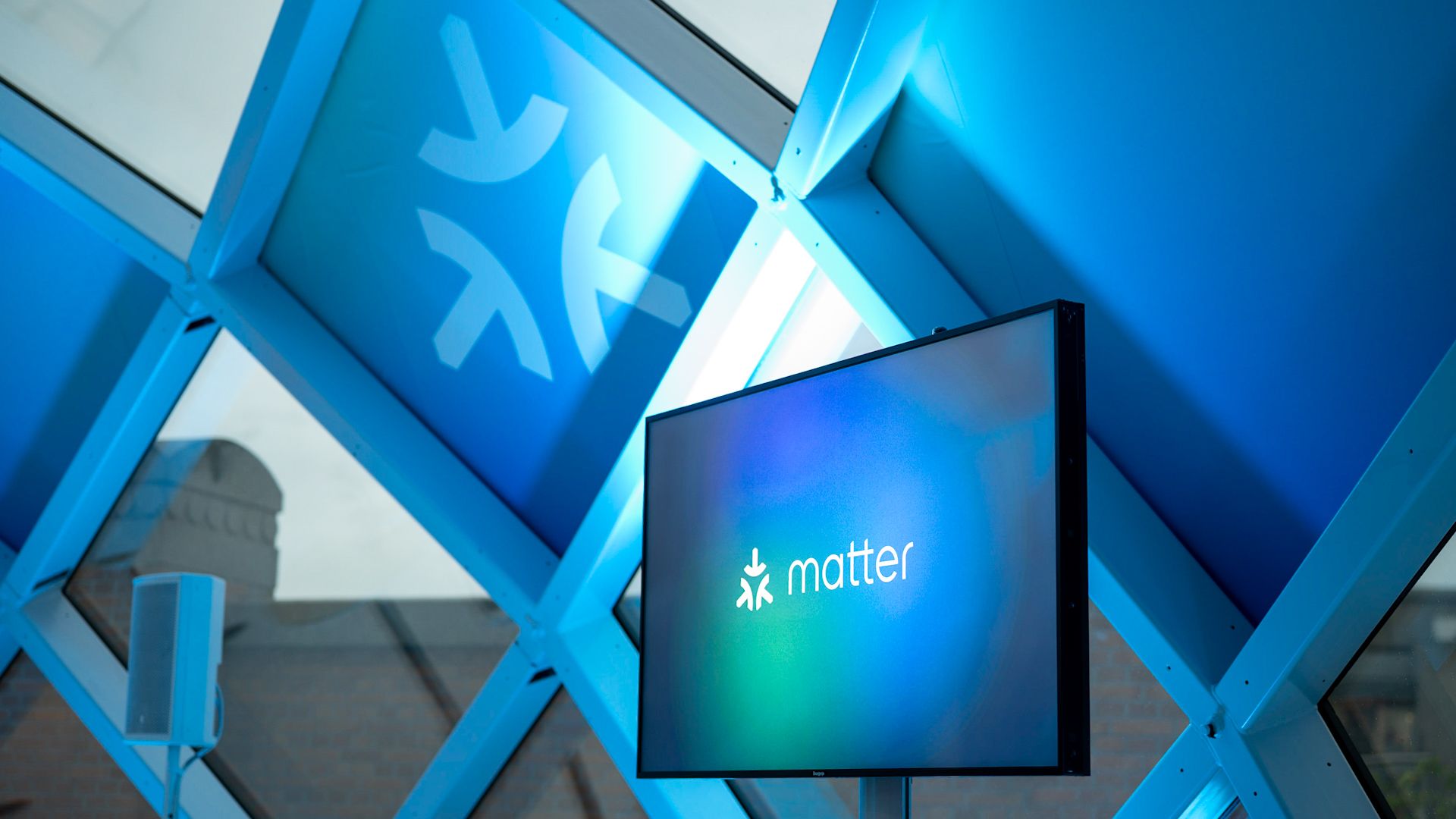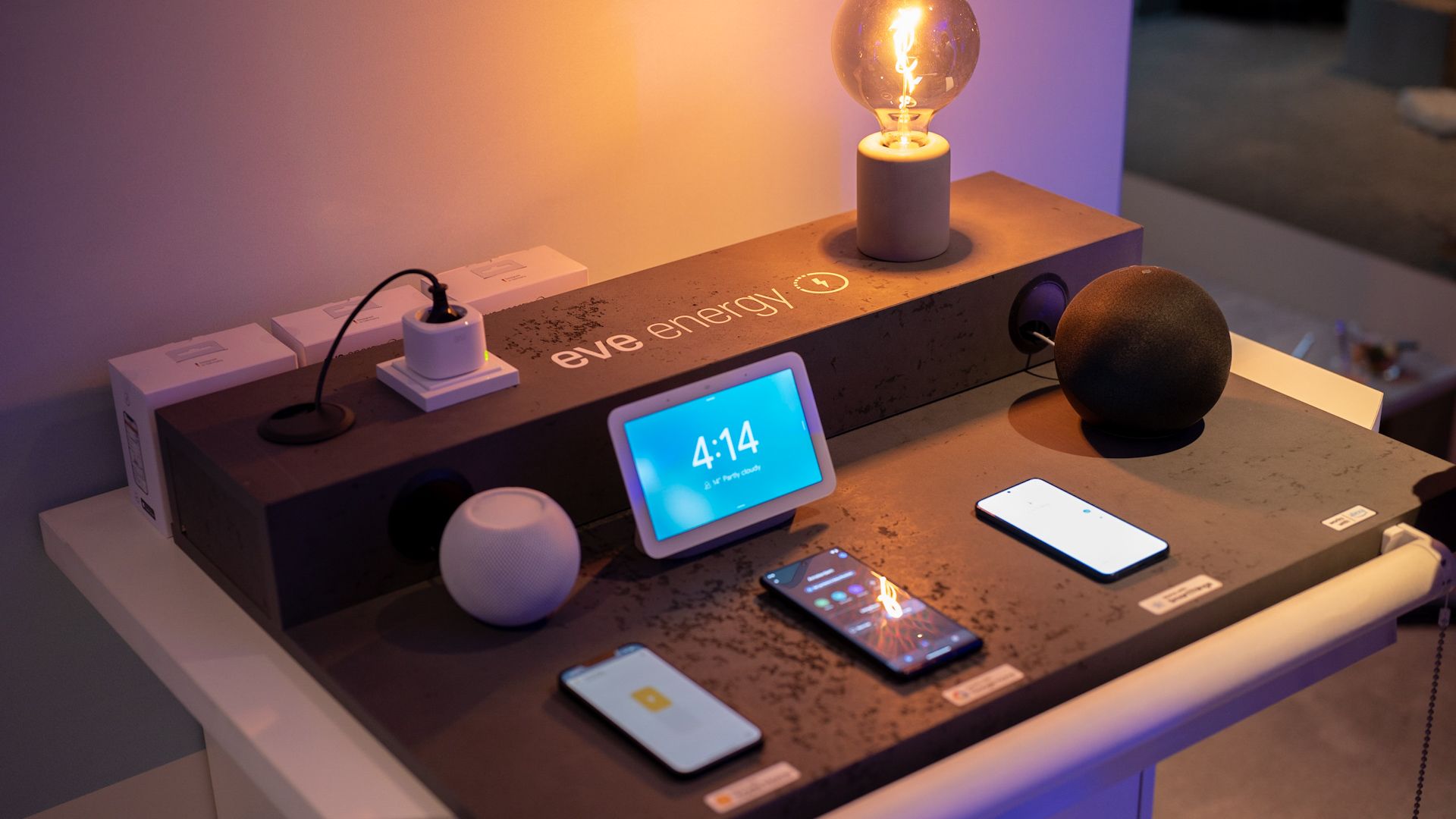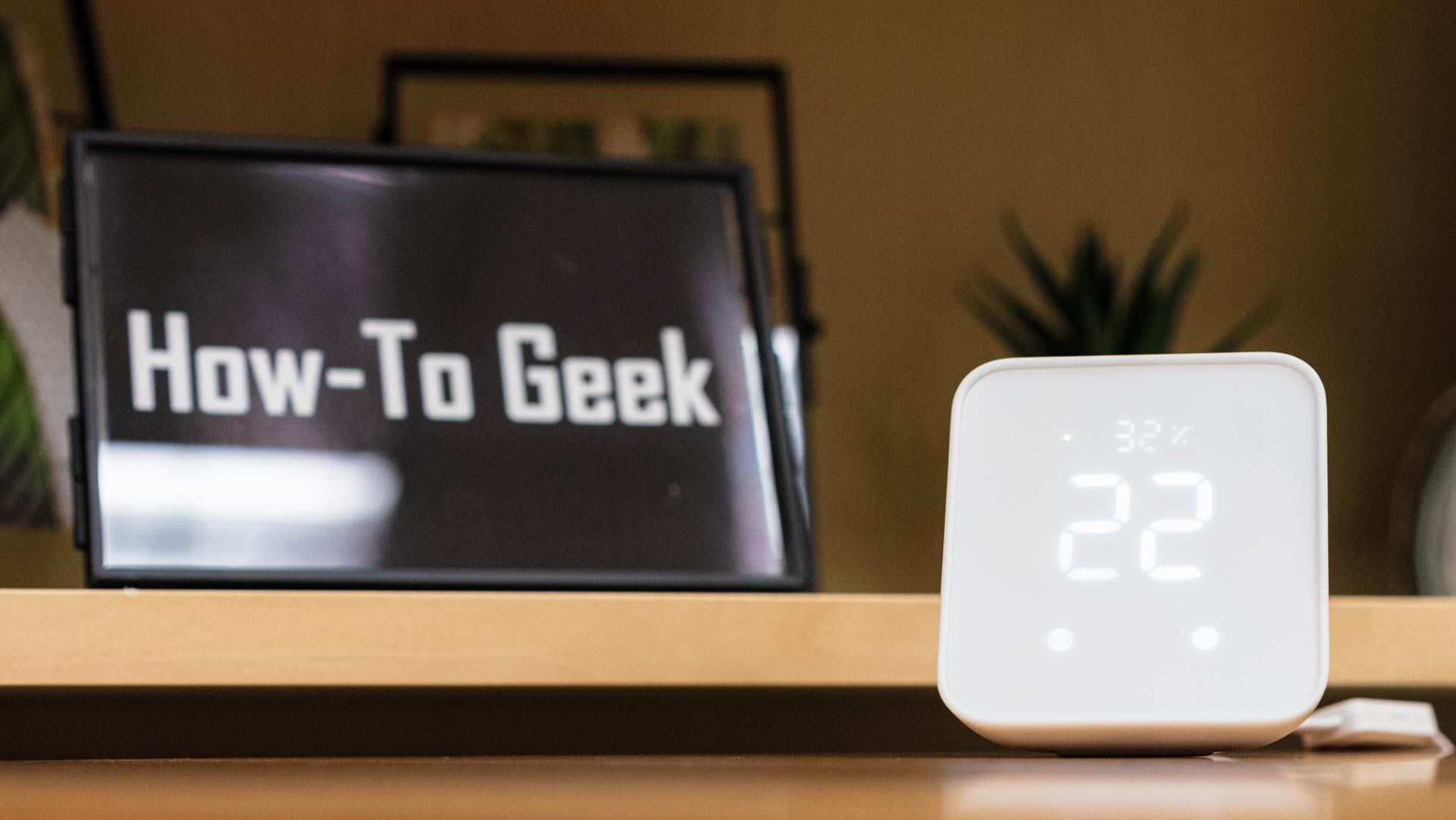Quick Links
Matter was supposed to be transformative. I bought a house in early 2022 and decided to wait for Matter to launch and become widespread before I started investing in smart home gear. One year later, I'm done waiting.
How Matter Was Supposed to Transform the Smart Home
The smart home is siloed. Matter was supposed to be a universal standard that let all your smart home devices work with each other. The standard started taking form in 2019 under the Connectivity Standards Alliance, which boasts members like Amazon, Apple, Google, and Samsung. Matter officially launched in October 2022.
A year ago, Matter was about to launch after many delays, and there was a lot of hype---but Matter's launch was delayed once again, to fall 2022. With the launch of Matter apparently six months away, it seemed silly to buy a bunch of smart home gear. After all, existing smart home devices aren't necessarily getting an update for Matter. I could wait and get my smart home set up right with modern devices that all talked to each other.
Everything could run locally without the need for cloud services, I wouldn't need a bunch of hubs for different devices, and every device could talk to each other. There'd be no need to choose between "Works With Alexa," "Works With Google Home," and Apple's HomeKit. The devices I purchased would work with whatever platform I chose, and if I wanted to switch in the future, I'd know they'd all be compatible with my new platform of choice. I wouldn't even need a separate app to set up each new device.
That was the promise of Matter, as I understood it. However, while Matter launched six months ago in late 2022, the problem isn't just that not enough devices support Matter yet---it's that Matter itself has been watered down so far from its original promise.
Matter Was Watered Down and Ignored
Josh Hendrickson, who runs our sister site Review Geek, went to Amsterdam for Matter's launch in late 2022. He discovered just how fragmented Matter is. Some Matter devices still require their own hubs you have to plug in. Various Matter features may or may not work with each individual device. You don't necessarily know if a Matter device will "Just work" with your other device or with your app of choice.
All that doesn't really matter because so many manufacturers and devices just aren't supporting matter. At CES 2023, several companies told me that they weren't seeing demand for Matter among their users. Some of them had good things to say about Matter's potential for standardization at some distant point in the future while refusing to commit to implementing it in the short term. Some companies are now even backing away from Matter---witness Belkin dropping Matter support in Wemo.
Digging into the details of Matter's problems is exhausting. (You should really read Josh's take on Matter's fragmentation if you want those geeky details.) As someone without a lot of smart home tech experience, I was told Matter was going to make things easier. But Matter seems like it's introducing a lot of complexity and confusion. The good news is most people haven't heard of Matter, so most people aren't confused by it.
That's perhaps one of the most damning problems with Matter, and it's highlighted by the experience How-To Geek's Senior Smart Home Editor, Jason Fitzpatrick, had while visiting a friend over the holidays. After excitedly showing him all their new smart home accessories, switches, and speakers, Jason asked them what they thought about Matter. The friend's response? "What's Matter?" That's a profound marketing failure if someone who invested enough in smart home to hardwire switches all over their home has never even heard of Matter.
Does This Device Support Matter? Who Cares
A year later, the future of Matter looks even muddier. Yes, you can get devices that support Matter. So what? It's not the easy, universal smart home standard that was promised---and even if it was, so many manufacturers are not supporting Matter. You can't count on Matter support in future devices. So what's the point?
The idea of Matter was that everything would work together. Everything you buy would work together. It's that simple. Older devices might not, but everything you see in stores would Just Work and talk to each other. (Maybe that's wrong. But that's what I was led to believe by the hype as someone without a lot of deep smart home experience!)
That didn't happen. It feels like we're farther from that happening than we were a year ago with Matter on the horizon. Smart home enthusiasts don't seem excited about Matter. Smart home company representatives weren't bullish on Matter when I talked to them at CES either.
So that's it: Matter doesn't matter to me right now. I'm done sitting around and waiting for Matter to take off and make the smart home interoperable.
In early 2022, our Senior Smart Home Editor, Jason Fitzpatrick, wrote an explanatory piece about what Matter is and why it's the smart home standard you've been waiting for. You want to know about Matter controllers, bridges, and border routers? He'll explain it all. Were you excited to get a Matter hub in response to the Matter 1.0 announcement? He was, too, and upgraded multiple devices in his home in preparation. Over a year later, he'll be the first to tell you that despite his optimism, he's still waiting along with the rest of us because the actual Matter rollout has been so lukewarm and fragmented that it's tough to care.
I'm Finally Free of Matter
I'm going to put Matter out of my mind and buy the smart home devices I want to use without worrying about Matter compatibility. I'll be sure they work with my platform of choice---that means looking for a "Works with Alexa" or "HomeKit" logo rather than waiting for Matter to totally transform how this all works. That means thinking about whether the devices I choose will work with each other and clearing some space to plug in a few hubs. That means engaging with the smart home ecosystem as it exists today and not how smart home enthusiasts wish it would work.
Ultimately, it's nice not having to think about Matter anymore---it's a load off my mind̀. It's a shame that I won't be able to rig everything together and set up advanced automations because everything can talk to each other---but let's be honest. The more complex you make your smart home, the more likely it is to break. Josh Hendrickson was all-in on smart home, and now his smart home is broken, and he just doesn't care.
Buy the Smart Home Tech You Want
Does that mean smart home tech is useless? Absolutely not. Smart thermostats can save you money. Smart lighting is cool. Smart video doorbells are fantastic. Smart security cameras are useful for obvious reasons---and non-obvious ones. Beyond security, even being able to capture your family playing outside or the wildlife in your yard is excellent. I could go on and on---none of this is really a must-have for every single person, but it's all cool. You don't need Matter for any of this.
But the smart home dream of having every device talking to each other device and automating every little thing is overrated at this point. As we see from Josh's experience, it's a lot of work to set up and maintain, even if everything could talk to each other.
I can't imagine many people were as silly as me---most people just didn't think about Matter. You either bought smart home stuff if you were interested in smart home tech, or you didn't buy smart home stuff because you didn't care about smart home in general.
But, if you were waiting for Matter, it's time to buy that smart doorbell. We like the Ring Video Doorbell 4. I don't know whether it supports Matter, and I don't care.
(But I looked into it for you, reader: This doorbell doesn't support Matter because Matter doesn't support cameras yet. I recommend you buy the cameras you want rather than waiting for Matter.)



